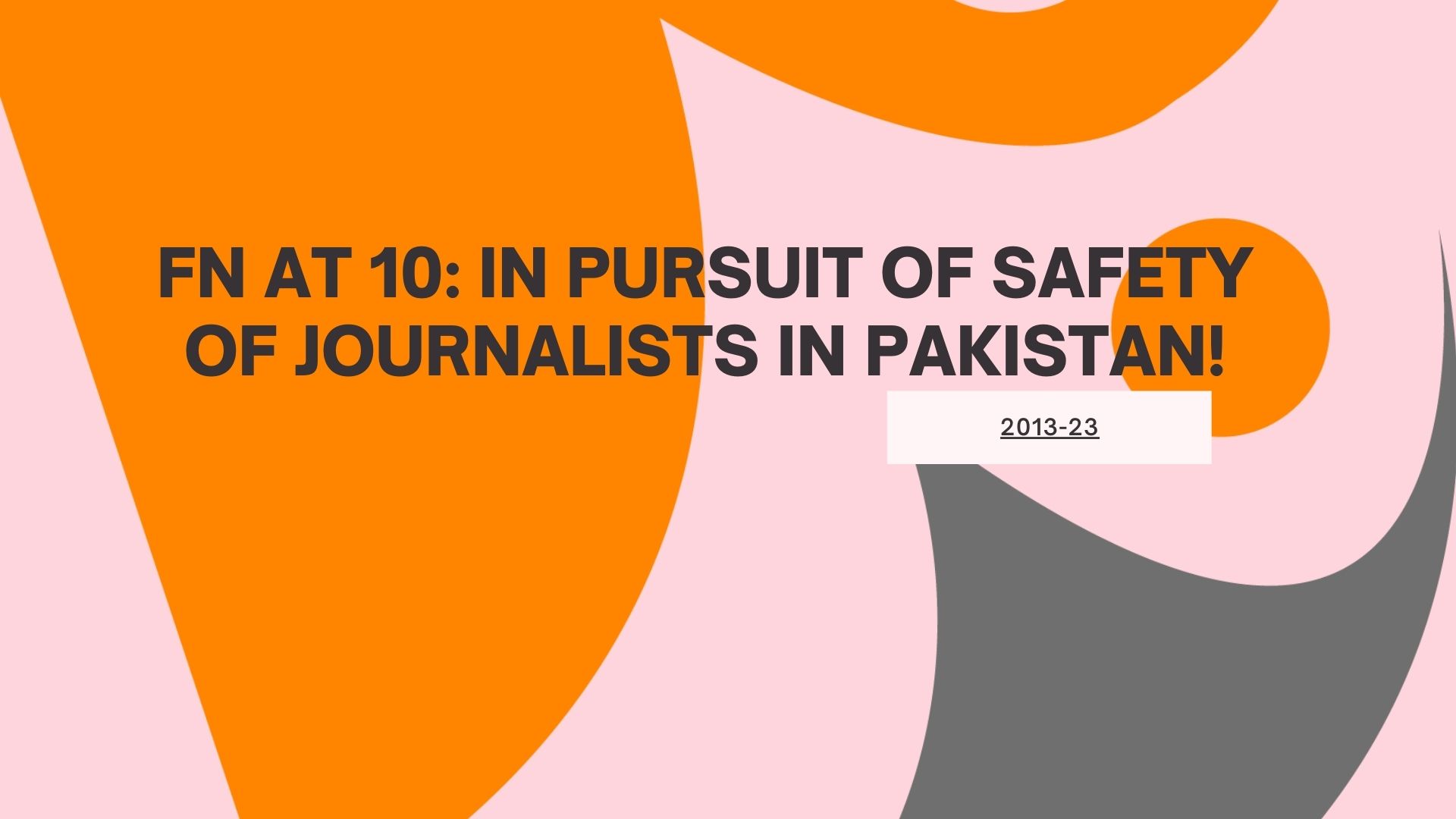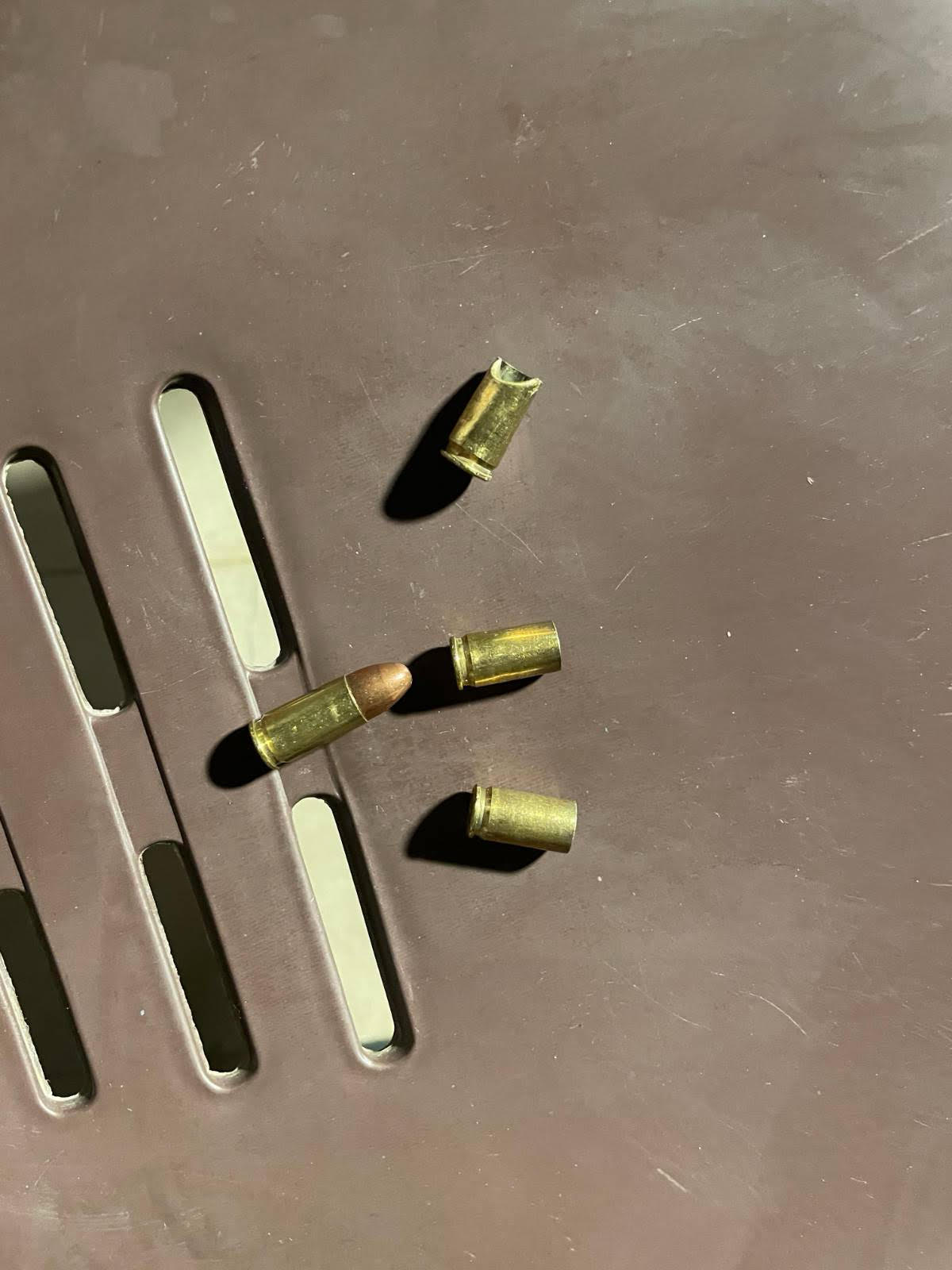By Iqbal Khattak
Looking back the past decade, it becomes evident that attacks on journalists were considered routine in Pakistan, both by the media and other stakeholders, including the government. Attacks on individual journalists or media houses were not seen as attacks on the entire journalism community. There was limited media coverage of such attacks, regardless of their severity. Moreover, there was no national-level media watchdog responsible for monitoring and documenting cases of intimidation, harassment, kidnapping, abduction, and legal threats a decade ago. At that time, there were no widespread advocacy campaigns or platforms dedicated to making the safety and security of journalists a national priority.
The safety of journalists remained uncertain after Islamabad joined the Washington-led war on terror following the 9/11 attacks in the United States. Between 2002 and 2013, an unprecedented number of journalists lost their lives in Pakistan, with the death toll reaching over 50 during that period.
The dire situation brought together some like-minded individuals with journalism backgrounds, including myself,who established an online platform similar to globally recognized and respected media rights watchdog Reporters Without Borders (RSF), where I have been working since 1999 to monitor violations of freedom of expression and the safety of journalists. The purpose of this platform – which we named Freedom Network (FN), was to monitor and document every attack faced by the media and its practitioners and raise a voice for their rights and safety. Quantifying the problem was crucial to influence any progress towards a legal framework.
Today, we celebrate the 10th anniversary of Freedom Network, which was launched on May 23, 2013, with the goal of advocating for journalists’ safety and security. The approach to address this issue was simple – advocacy with two primary objectives — 1) Making journalists’ safety a national agenda and priority, and 2) Enacting a legal framework by urging Parliament to enact legislation to protect information practitioners. Today, both goals stand achieved thanks to consistent and vocal efforts led by FN with the support of key stakeholders.
FN’s vision is to “defend and promote civil liberties by championing and assisting an informed society that views media as a crucial partner in creating an open, democratic, pluralistic, and inclusive Pakistan.” This shared vision became a stepping-stone for FN to become the flag-bearer of the UN Plan of Action on the Safety of Journalists and the Issue of Impunity. The UN Plan of Action played a vital role in bringing together all stakeholders, culminating in the historic “Islamabad Declaration” publicly announced in October 2013 at an international conference hosted by FN, which clearly identified and agreed upon the roles and responsibilities of each stakeholder in Pakistan, including the government, the parliament, the media, the civil society, UNESCO, and international media rights watchdogs like Reporters Without Borders (RSF) and International Media Support (IMS).
FN pursued the “3P” strategy – prevention, protection and prosecution – to combat the deepening impunity for crimes against journalists in Pakistan since January 2002 when Wall Street Journal reporter Daniel Pearl was abducted and murdered in Karachi. Through the intervening years of interventions, FN managed to save the lives of more than 100 journalists by providing rapid assistance in various categories, including inland relocation and FN often struggles to generate resources to keep this effective mechanism running. Unfortunately, there is no equivalent life-saving mechanism available at the State-level for journalists who face risks.
With consistent advocacy by an FN-established and supported Pakistan Journalist Safety Coalition, a grouping of journalists’ unions, media associations, rights groups, civil society and political parties, in late 2021 Pakistan became the first Asian country to legislate for the protection of journalists at both the federal and provincial levels, with Sindh taking the lead in this regard. In April 2018, an FN meeting with current Foreign Minister Bilawal Bhutto-Zardari resulted in a pledge from the Pakistan People’s Party chairman that his party would enact this legislation if they won the 2018 general elections. He fulfilled his promise.
However, both the federal and Sindh journalists’ safety laws are a case of the proverbial “glass half full.” It took the Sindh government a full year before operationalizing the provincial legislation by notifying the safety commission, which still hasn’t been provided adequate resources to implement its mandate to reduce the impunity of crimes against journalists. The chairman of the commission, Mr. Rasheed A Rizvi, must be fully resourced by the government to safeguard journalists in Sindh.
The federal government – despite two prime ministers ruling the country since the federal journalists’ safety bill was legislated – has not even notified a safety commission, with the result that 10 journalists have been killed since the legislation and dozens attacked, injured, kidnapped and arrested but not a single victim journalist has benefitted from the law. This must change – Prime Minister Shahbaz Sharif must fulfill his promise made at an international conference in Islamabad in November 2022, held by FN, that he would “urgently notify the federal safety commission.”
Meanwhile, the task of continuing the advocacy required to mobilize state and citizen resources and policy implementation remains and FN will continue this mission with the help of media and civil society. Through its three platforms of Pakistan Journalist Safety Fund, Pakistan Journalists’ Safety Coalition and National Press Clubs Safety Hubs Network, FN will continue to raise its voice to ensure that journalists in Pakistan can safely practice journalism and that freedom of expression and access to information do not remain hazardous endeavors by the journalists of Pakistan. Our journalists deserve better.
The author is Executive Director of Freedom Network. He can be reached at @khattak63.

